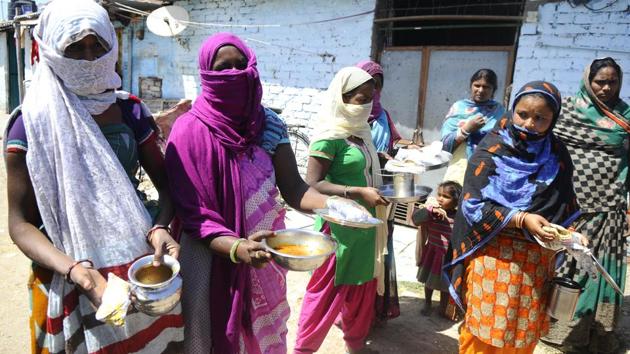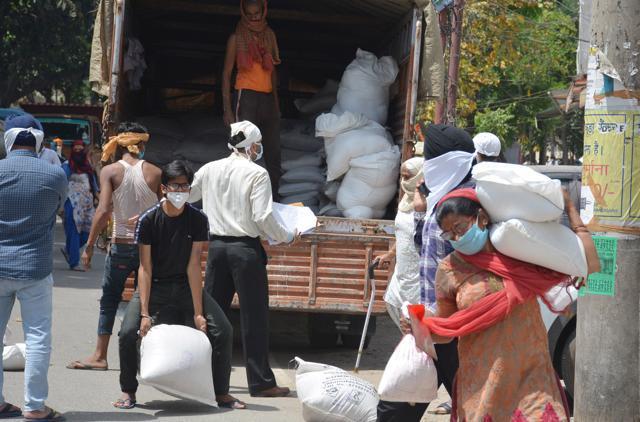Chandigarh’s PDS distribution far from enough to alleviate hunger
Substantial number of poor not enrolled with the food and supplies department and are hence not eligible for the free 5kg wheat and 1kg pulses per month.
The ongoing distribution of wheat and pulses under centre’s public distribution system (PDS) is not enough to mitigate hunger among thousands of poor affected by the Covid-19 lockdown in Chandigarh.

Those affected say that a substantial fraction of the poor are not given the ration because they are not enrolled with the local food and supplies department for free ration.
PDS beneficiaries get 5kg wheat per month per member and 1kg pulses per month per family. The UT administration, through 11 teams, is distributing three months of ration in one go in line with the central government’s directions.
AFFECTED POPULACE MORE THAN REGISTERED BENEFICIARIES
UT administration figures reveal that 63,616 beneficiary families are eligible for ration distribution, whereas, according to industrial bodies, the city has over 1.25 lakh labourers, who along with their families, are struggling due to scarce resources.
Former mayor and Maloya colony councillor Rajesh Kumar Kalia said the second phase of the lockdown will be much more severe on the unemployed daily wagers, as whatever stock of ration they could manage before the lockdown will be exhausted. “Distribution of cooked food is not a permanent solution. We need a little compassion from the administration in terms of ration distribution to people outside the enrolment list,” he said.
Kanwaljeet Singh Rana, councillor from Sector 45, said in his ward, only 2,500 people got the ration under PDS, while at least 10,000 were bereft of it. “We are trying to give them cooked food, but that is not an effective solution,” he added.
On Thursday, the administration distributed ration in Bapudham Colony near Sector 26. During distribution, councillor Dalip Sharma appealed to the beneficiaries to share the supplies. Chanderwati Shukla, councillor of Sectors 43 and 52, where over 10,000 migrant families live, said, “There are people who got over one quintal of wheat under PDS, then there are those who don’t have anything at all. Such inequality must be addressed before it causes unrest among the underprivileged,” she said.

‘INVOLVE ELECTED REPRESENTATIVES, TEMPORARY RATION CARDS’
Dr Rajesh Gill, professor of sociology at Panjab University, said the situation was definitely alarming, as snatching of livelihoods had pushed thousands into starvation. “We don’t know how long it will be before the economy revives. As India has sufficient stock of food grain, we need to devise a mechanism to reach out to non-PDS beneficiaries,” she said.
She said local councillors could identify such people and issue them temporary ration cards till the lockdown was in place. “Quick mapping of poor is possible in a small territory like Chandigarh,” she said.
Teachers in PU’s economics and public administration departments also emphasised the need for effective distribution of cooked food among the needy, something where UT was struggling even three weeks after lockdown.
UT secretary, food supplies and consumer affairs, Vinod P Kavle, could not be reached for comments.





